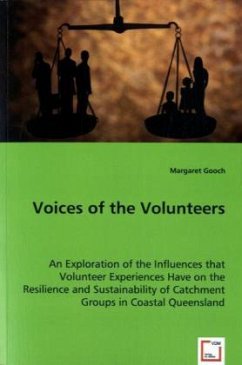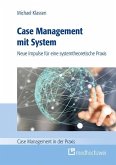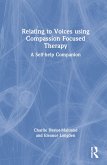Volunteers in stewardship groups are a major element of the social mobilisation strategy used in Australia to manage natural resources. The ability of such groups to overcome problems, deal with new issues as they arise, and keep going under pressure may be thought of as managing for "resilience". This approach uses the idea of adaptive change where resilient communities are simultaneously changeable and stable, adapting to new situations as they arise. Interviews were conducted along the east coast of Queensland, Australia, to better understand resilience in community-based stewardship groups. Participants were drawn from groups such as Landcare; Coastcare; Bushcare; Greening Australia; Waterwatch; and Integrated Catchment Management Committees. Analysis of 26 personal and group interviews involving 85 participants revealed six different conceptions, where catchment volunteering was experienced as seeking and maintaining balance; developing/ maintaining an identity; empowerment;learning; networking; and contributing to sustainability. Analysis of these conceptions enhanced an understanding of how resilience may be developed in community-based stewardship groups.
Bitte wählen Sie Ihr Anliegen aus.
Rechnungen
Retourenschein anfordern
Bestellstatus
Storno








